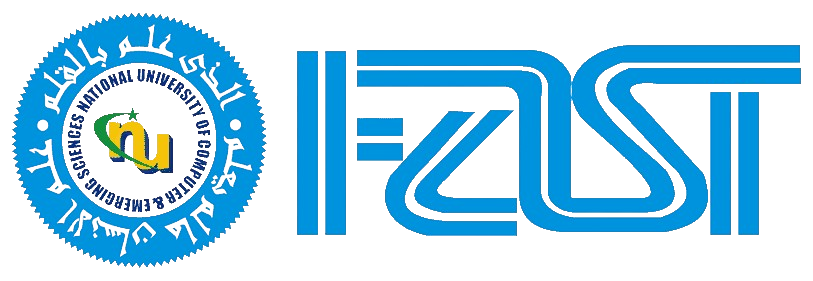

Python Summer Coding Camp
PKR 30,000
- In-person (FAST Campus Islamabad)
- Age: 14 to 18 years
- 1 Month
- 22nd July
- Monday - Friday, 10 AM - 1 PM
Course Overview
This curriculum is designed to introduce students to Python programming, focusing on building a strong foundation in fundamental programming principles through hands-on projects and interactive challenges.
The course covers basic concepts like variables and data types, progresses through control flow and data structures, and culminates in the development of interactive applications and games.
Additionally, students will explore advanced topics such as encryption and graphical user interfaces, promoting problem-solving skills, critical thinking, and the ability to create functional and engaging software.
Fee
-
For 1 Month
Check your Eligibility
- 14-18 Years of Age (Male/Female)
- O/A Levels or Metric/FSc
What to expect from this bootcamp
Get yourself ready for future of work in python and here is how we help you do that:
- Master Python Basics
- Implement Control Flow and Data Structures
- Develop Functional and Modular Code
- Build Interactive and Graphical Applications
- Apply Problem-Solving and Critical Thinking
Additional Activities
- Industry Visits
- Global Freelancing
- Experiencing FAST Campus Life
- State-of-the-art Lab Facilities
- Guest Lectures By Market Leaders
- Capstone Projects
Curriculum
Module 1: Python Basics to Object-Oriented Programming
- Introduction to Python, Variables, Data Types
- Control Flow: if/else, Loops
- Functions, Recursion
- Python Collections: Lists, Dictionaries
- Projects: BMI Calculator, Tip Calculator, Treasure Island
- Error Handling, Debugging
- Object-Oriented Programming (OOP)
- Introduction to GUIs with Tkinter
- Projects: Hangman Game, Caesar Cipher, Python Dictionaries Quiz
Module 2: Advanced Applications and Development
- Advanced Data Structures: Nested Lists, Dictionaries
- Advanced OOP Concepts, Inheritance, and Polymorphism
- Working with Files, CSV Data, and pandas library
- Advanced GUI Applications with Tkinter and Error Handling
- Web Development with Flask, HTML & CSS Basics
- API Interaction, Web Scraping with Beautiful Soup and Selenium
- Data Analysis and Visualization with pandas, matplotlib, Seaborn
- Capstone Projects: Web Scraping, Data Analysis, Flask Web Applications
1.1: Introduction to Python Basics
- Working with Variables:
- Understanding how to create and use variables.
- Performing basic arithmetic operations and assignments.
- Understanding Data Types:
- Differentiating between strings, integers, floats, and booleans.
- Converting between different data types.
- Handling user input and output effectively.
Key Learning:
- Grasp the foundational elements of Python programming.
- Apply basic programming concepts to create simple programs.
1.2: Control Flow and Decision Making
- If/Else Statements:
- Using conditional statements to control the flow of a program.
- Understanding comparison and logical operators.
- Nested If/Else Statements:
- Implementing more complex decision-making structures.
- Utilizing elif statements for multiple conditions.
Key Learning:
- Implement control flow in programs to handle different scenarios.
- Develop problem-solving skills through conditional logic.
2.1: Randomization and Lists
- Randomization in Python:
- Utilizing the random module to generate random numbers and choices.
- Lists:
- Creating and manipulating lists.
- Understanding list indexing, slicing, and nested lists.
Key Learning:
- Use randomization to enhance interactivity in programs.
- Efficiently manage collections of data using lists.
2.2: Python Loops
- Introduction to Loops:
- Implementing for and while loops for iteration.
- Using Loops with Lists:
- Iterating through lists with loops.
- Understanding list comprehensions for concise code.
Key Learning:
- Automate repetitive tasks using loops.
- Perform complex data manipulations with loops and lists.
3.1: Python Functions and Karel
- Introduction to Functions:
- Defining and calling functions.
- Understanding function arguments and return values.
- While Loops:
- Applying while loops for repeated execution based on conditions.
Key Learning:
- Modularize code using functions for better organization and reusability.
- Solve problems using logical constructs like loops and functions.
3.2: Hangman Game
- Implementing a complete game step-by-step, covering:
- Random word selection.
- User input handling.
- Game state management and user experience.
Key Learning:
- Apply cumulative knowledge to develop a complete, interactive game.
- Enhance problem-solving and debugging skills.
4.1: Encryption and Decryption
- Function Parameters:
- Using default parameters and keyword arguments.
- Caesar Cipher:
- Implementing basic encryption and decryption techniques.
Key Learning:
- Understand function parameterization for flexible code.
- Grasp the basics of cryptography and its applications.
4.2: Dictionaries and Nesting
- Introduction to Dictionaries:
- Creating and using dictionaries to store key-value pairs.
- Nesting:
- Handling complex data structures with nested dictionaries.
Key Learning:
- Utilize dictionaries for efficient data storage and retrieval.
- Manage complex data structures to solve real-world problems.
4.3: Turtles and Graphical User Interface (GUI)
- Introduction to the turtle Module:
- Drawing shapes and patterns programmatically.
- Creating a GUI:
- Building basic GUI applications with event handling.
Key Learning:
- Create graphical programs and visualizations using the turtle module.
- Develop simple GUI applications to enhance user interaction
Key Features
Industry-Ready Portfolio
Craft a portfolio that showcases your industry-ready projects.








